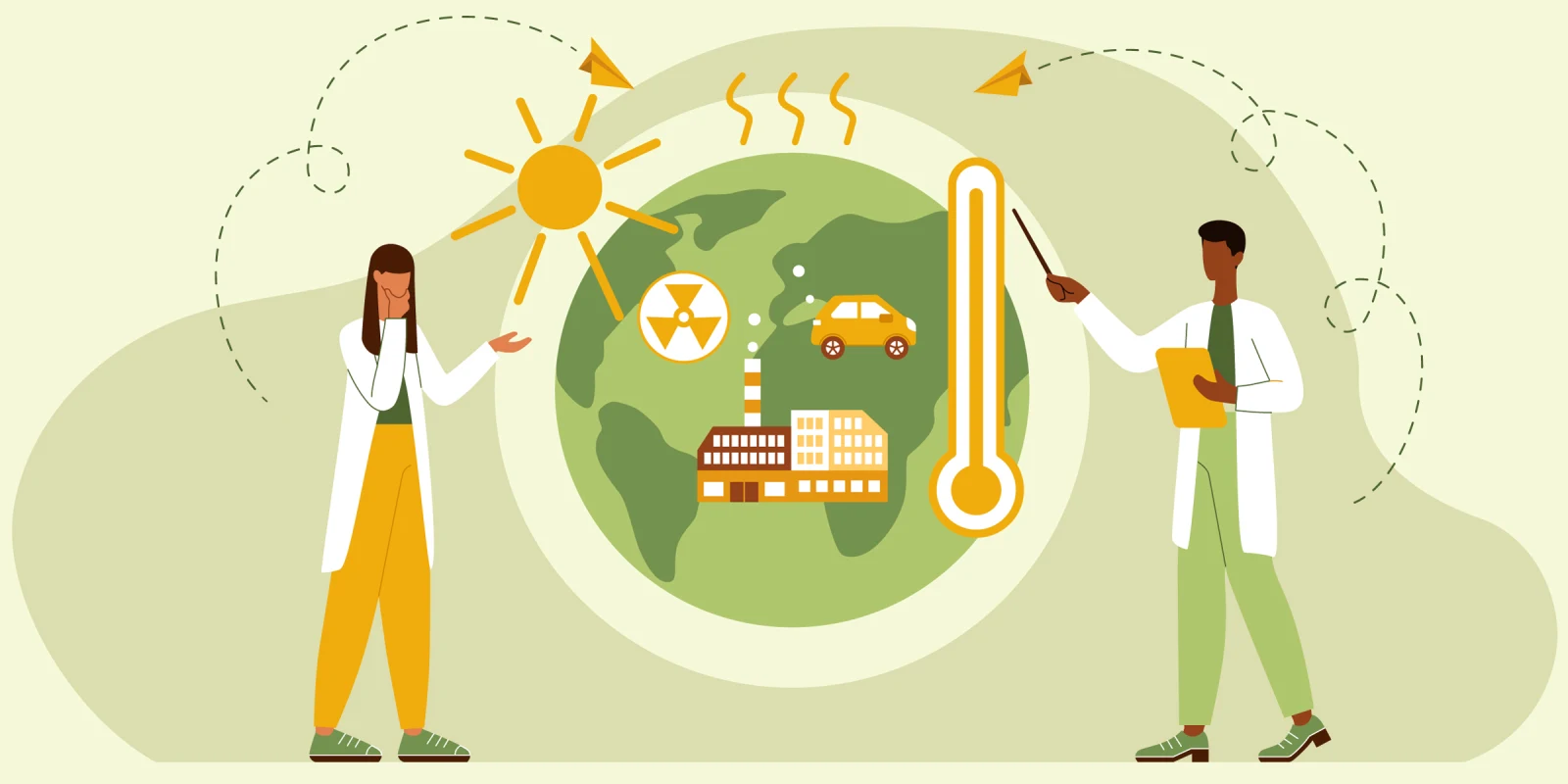Ms. Jones was new to the practice — and new to the country. I was completing my family medicine clerkship in Concord, NH, and Ms. Jones came to our safety net clinic seeking care for herself. She spoke little English, but with her daughter’s assistance she told me that she had come as a refugee from east Africa just a couple of months before.
“What prompted you to seek refugee status?” I asked, curious.
“We had endless famines,” she told me. “Bad harvests for years. It is getting too hot to be able to farm and access food in my country.”
Climate change — long term shifts in weather and temperature — continues to affect our planet and its people. The relationship between climate change and health remains a complicated and evolving one, as evidenced by Ms. Jones’ story. Ms. Jones is a climate refugee, someone forced to emigrate because of the direct or indirect effects of climate change. According to some estimates, up to 1.2 billion people could be classified as climate refugees by the year 2050.
And climate refugees are increasingly relocating to smaller cities in towns in the U.S., not just major metropolises. Concord, NH has a population of only roughly 44,000, but it already features a thriving community of climate refugees.
For those in at-risk areas who opt to stay in their homes, climate change will interrupt their lives in the form of hurricanes, floods, and famine. Some have hypothesized that climate change has contributed to the spread of COVID-19, and it is more than likely that future pandemics will be worsened by the impacts of climate change. Taken as a whole, it is undeniable that moving forward we will see an increasing number of natural disasters, with resulting deleterious effects on public health.
Yet despite the burgeoning numbers of people fleeing climate change and the growing impact of climate change on public health, I received no formal education during medical school regarding the effects of climate change. I recently attended an optional lecture concerning the subject, which has been my sole exposure to this area during medical school. The objective of medical school should be to train physicians who are capable of treating people of all backgrounds, in all situations, but in the area of climate-related health care (and in other areas as well), we fall short of this goal. My experience at the family medicine clinic was my sole encounter with someone affected by weather or climate, and it occurred solely by happenstance.
In the last 50 years, there have been 11,000 disasters related to weather and weather extremes. In the coming years, this number will continue to increase. As a result, we will more than likely be called upon to respond to a weather related natural disaster, from blizzards in the Northeast to wildfires in the West to hurricanes in the South. My medical school featured no training in disaster medicine, which is typical of most medical schools. Lectures on this topic — including preparation for a disaster, dealing with a medical surge, and learning how to triage patients in such a situation — should be incorporated into the curriculum.
Furthermore, medical school curricula should include materials on refugee health. These populations have special health care concerns, including the need for mental health care resources. My patient who emigrated from east Africa had not received any vaccinations, so the attending physician and I had to search for and create a vaccination schedule for her. Within the broader population of refugees, climate refugees often have special needs, such as malnutrition and the presence of communicable diseases.
As my experience in Concord, NH attests, climate refugees are already present in our communities, and the number of climate-related disasters will only continue to rise. If we desire to be good stewards of the health care of our communities, we must learn the needs of special populations within each community, including and especially climate refugees. The best way to begin to do so is to focus on each individual and to recognize that climate refugees’ background and needs are different from those of long-term residents of the communities we serve.
We must also prepare for climate-related natural disasters, as the data indicate that we will have to address their sequelae in our careers, regardless of where in the U.S. we choose to practice medicine. Our training should reflect these probabilities, and medical school curricula should adapt along with our changing climate.
What would you add to medical school curricula? Share in the comments.
Sathvik Namburar, originally from Duluth, GA and a graduate of Johns Hopkins University, is currently a medical student at Dartmouth College in Hanover, NH. His writing has been published in USA Today, Boston Globe, and Baltimore Sun, among other publications. His interests include public health policy and health care equity, as well as global health. He is a 2021–2022 Doximity Op-Med Fellow.
All names and identifying information have been modified to protect patient privacy.
Image by LollyKat / Shutterstock







